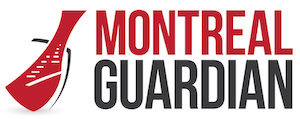In 2014, the federal government tasked Dr. David Naylor with identifying the five most promising areas of innovation in Canada with potential to sustainably reduce growth in healthcare spending while improving quality and accessibility of care. One key theme from the report, Unleashing Innovation: Excellent Healthcare for Canada, was health data.

Innovation in Canadian healthcare is inextricably tied to solving our long-standing health data challenges. That was true in 2014 and remains true today. Canadian governments have systematically failed to bring Canada’s data infrastructure to world class standards, with serious repercussions for the health of people living in Canada and of our healthcare system itself.
But it’s not too late.
In 1992, the Supreme Court of Canada confirmed patients’ right to access their personal health data. But exaggerated and unsupported concerns about privacy legislation and liability have contributed to risk-averse cultures across the healthcare spectrum, impeding patients’ access to their data.
Canadian patients routinely experience unreasonable delays or financial charges when seeking access to, and control of, their data. Unfortunately, these problems are not unique to patients.
Sharing between healthcare providers, institutions, researchers, planners and policymakers is impeded by our lack of a coherent, operationalized strategy to ensure shareable health data. This means we are not using all the data available to us whenever a healthcare decision is being made, whether it’s a decision about patient care, improving care or improving the system itself.
Accessible health data is the low hanging fruit of a dramatically improved – and self-improving – health system. So why do our governments continually fail to make them a priority?
These long-standing problems with health data led a group of patients and caregivers to draft a Declaration of Personal Health Data Rights in Canada. It aims to build consensus on data among patients, the public and groups representing them, create awareness, spur conversations and inform policy decision-making.
The Declaration promotes the equal importance of privacy and sharing of personal health data, outlining 11 health data rights that people have, including the right to:
- Be informed
- Consent
- Access, portability and correction
- De-identification
- Benefit (“something that produces good or helpful results or effects or that promotes well-being”)
- Object to the processing of their personal health data
- Restrict processing
- A complaint process
- Privacy and security
- Erasure
- Engagement
- Establishing systems that meaningfully share and use health data to improve patient care, provider and institutional effectiveness and efficiency and system-level improvements is entirely achievable.
It’s time our governments made it a priority.
Scotland provides a useful example. The Tayside health board covering Dundee, Perth & Kinross and Angus developed a command centre with dashboards providing minute by minute access to information across all its hospitals. Dashboards include capacity issues, staffing, ambulance arrivals, emergency room activity, inpatient analytics and bed status for the hospitals.
The dashboard is expanding to predict seasonal trends and patient admission likelihood that will help administrators manage all aspects of planning and implementation to optimize patient care. By having visibility of information across the entire health board, it has improved patient flow and helped achieve performance targets.
There’s no reason Canada could not do this. Imagine each healthcare setting across the country having such tools, sharing relevant data and rolling them up into regional and national dashboards to plan for healthcare broadly?
The hard work of creating a realistic roadmap has already been done.
An Expert Advisory Group, struck in 2020, released three reports in support of a pan-Canadian Health Data Strategy to support the effective creation, exchange and use of data to benefit people in Canada and the health systems on which we rely. The reports lay out how to establish a common foundation for improving Canada’s ability to collect, protect and use data.
Thankfully, the Federal, Provincial and Territorial Privacy Commissioners also recently acknowledged the importance of implementing this Strategy.
The Advisory Group provides a systemic blueprint, detailing how Canada can achieve a world class health system through enhanced health data infrastructure. Now governments need to heed the call.
About the authors:

Louise Binder is the health policy consultant for the Save Your Skin Foundation.

Jenni Woods is Health & Business Intelligence Lead at National Health Service, Tayside, Scotland.



